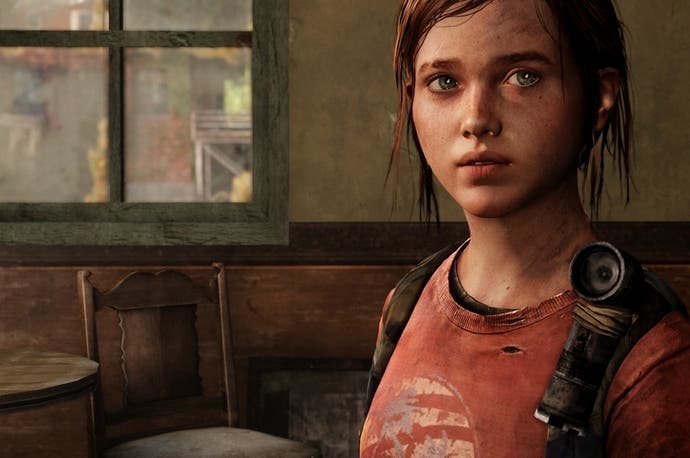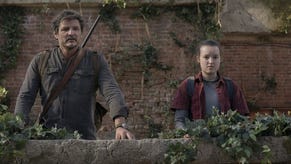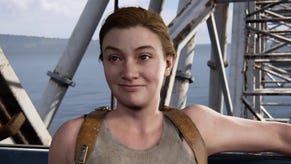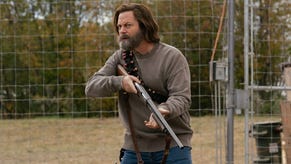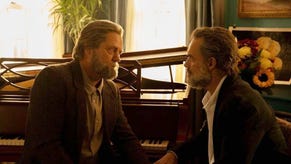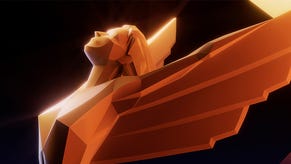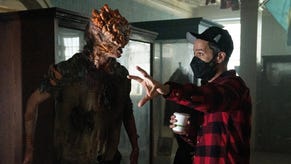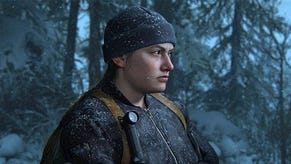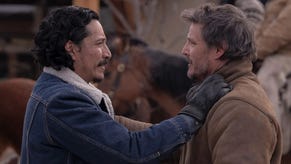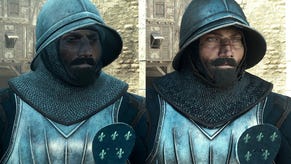Games of the Generation: The Last of Us
Made it Ma. Top of the world!
Over the next two weeks we'll be bringing you our pick of the games of the generation. Today we're looking at The Last of Us, Naughty Dog's masterful and melancholy action game that took the formula started with Uncharted to its peak.
The scene opens on the hero of the piece. It's 2007 and Naughty Dog, a peppy developer with a flair for character-driven platform games, has set out to make it big in the land of the (PlayStation) free. A confident debut with Uncharted is followed by a blockbuster hit of a sequel; Naughty Dog is on a roll and making it look easy, but then there's the smallest of stumbles. While the third in its whizz-bang Uncharted series is accomplished, it lacks the impact and creative highs of its predecessors; it's becoming harder to ignore the highly-polished rails on which this ride is run.
But wait, there's an eleventh hour twist! The introduction of a new project deep into the console cycle looks set to determine whether our hero's legacy is one of glory or a tale of what might have been. Plumbing depths that some doubted the old dog had, The Last of Us is presented to the crowd. Stunned silence is followed by rapturous applause. Cut to Naughty Dog; a deep, steadying breath, a modest smile and a single nod of the head. Fade to black.
In Hollywood such happy endings are assured, but in real life attaining them is rarely so straightforward. On paper, The Last of Us is standard, big-budget blockbuster fare laced with Hollywood cliché. Its setting, subject matter, characters and relationships have all been seen in one form or another across a host of films and video games alike. The UK launch event of The Last of Us offered tacit acknowledgement of this, hosted in an old London cinema during a night that included screenings of I Am Legend and The Road.
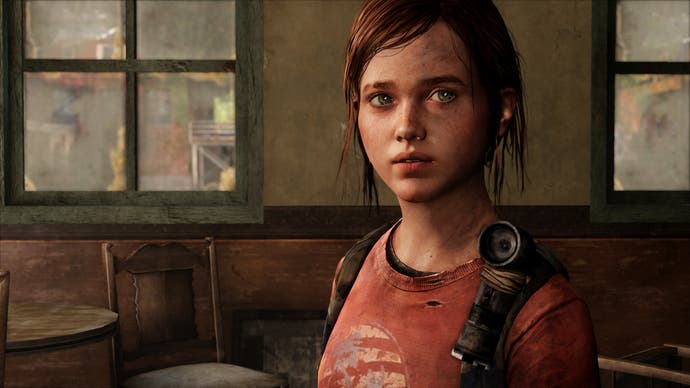
Nonetheless, expectations for The Last of Us were high, tempered only by the mild concerns associated with launching a new IP near the end of one generation as a restless audience casts glances toward the next. Amongst its many achievements, then, is that The Last of Us both exceeds and subverts those expectations by delivering the mature and meaningful blockbuster experience that this seventh generation of consoles has promised since its inception.
"The Last of Us is an experience whose individual parts can and will be replicated but that, as a whole, sits atop the pile of narrative driven experiences as a high profile, mainstream example of what the medium is capable of."
Right from the start it's made clear that The Last of Us is going to be more straight-laced than Uncharted and has the potential to be more engaging than its contemporaries - not everyone is going to get what they deserve, and good people are going to die. Less accomplished story-tellers might have chosen to drip-feed the back-story of grizzled survivalist Joel and revealed the deep hurt he harbours as a form of narrative pay-off, Naughty Dog simply jumps straight in with an emotional gut-punch to rival the opening sequence of Pixar's Up.
From that point forward, the heavy-handed exposition that we've been taught to expect from video games is replaced by fleeting facial expressions, gestures and a concise script. We all understand why Joel is reluctant to accept the responsibility of accompanying precocious teen Ellie across a post-apocalyptic USA; we can see it in his face and, crucially, so can those around him. Naughty Dog rarely treats its audience as anything other than adults and grants its characters a degree of rational thought and empathy so that it can show and not tell; something its counterparts in other areas of the industry and certain corners of Hollywood itself would do well to learn from.
The script is given a tremendous boost by the performances of its lead actors. Seasoned video game actor Troy Baker and industry newcomer Ashley Johnson deliver stunning performances as Joel and Ellie. Both pitch their individual characters in such a way that you believe and understand them. Ellie can't help but be awed by the outside world, nervous excitement of a place that's been denied to her mixed with the caution she knows is necessary to survive it. Joel is ever cynical, always jaded and desperate to keep Ellie at arm's length to stave off the weight of grief that he carries with him at the death of his daughter. By the time the inevitable bond is forged between them you buy into it entirely.
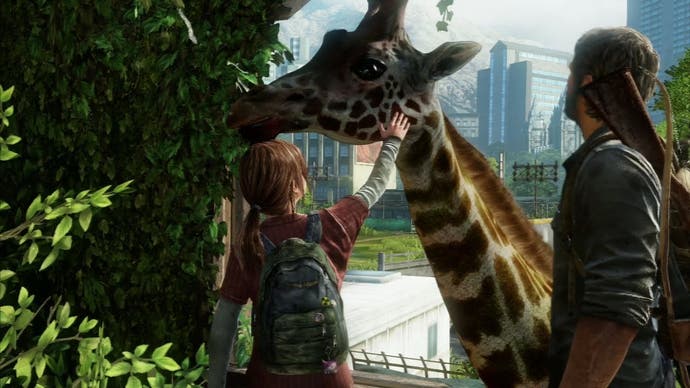
To its credit, Naughty Dog avoids the temptation to guide us by the hand to point out how clever it's being. Instead, it allows for quiet moments of exploration and reflection during which we can discover things for ourselves and so subsequent play-throughs are all the more rewarding. Armed with the knowledge of what's to come, we better understand why Joel seems unwilling and then incapable of mourning Tess' death. It clicks that the reason the reunion of Joel and his brother Tommy is surprisingly touching is because a hearty embrace takes the place of tensely anticipated conflict and, of course, we're able to pinpoint the moment when Joel's resolve crumbles and he begins to need Ellie more than she needs him.
That the game sitting atop this narrative works with this carefully constructed illusion is what makes The Last of Us a triumph of both style and substance. The script, actors and Gustavo Santaolalla's haunting, low-key score blend seamlessly with the moment to moment gameplay. A gamer's compulsion to collect everything and search every dark corner fits perfectly within the context of its survivalist fiction, lending continuity to actions that other titles have to make allowances for. That said, The Last of Us is at its weakest when it's making concessions to standard video game tropes. Joel's "X-ray vision", the out of context power-ups and glut of weapons that can be amassed feel out of place in its otherwise impeccably realised world and so while a sequel might lessen the impact of Joel and Ellie's story, it could take still bigger risks in these areas.
The Last of Us is every inch the epic blockbuster. Its pacing and set pieces are well judged, its story of loss, hope and betrayal leaves us conflicted and the savage beauty of its world offers melancholic lows and dizzy highs. It is an experience whose individual parts can and will be replicated but that, as a whole, sits atop the pile of narrative driven experiences as a high profile, mainstream example of what the medium is capable of. Hollywood can keep its happy endings, I prefer mine bittersweet.
